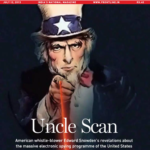In an article titled Barometer on China’s Health: Shippers the Wall Street Journal noted yesterday that “If China’s economy is faltering, the global shipping industry will be among the first to reveal it.” Most of the commodities such as oil, iron ore, wheat, etc. are shipped worldwide are transported by ships.
The article added “The Baltic Dry has surged fivefold since then amid signs of a recovering global economy, though it is essentially unchanged since late May. Particularly helpful to shippers has been the voracious appetite of China, which imported roughly 297 million tons of iron ore in the first half of the year.”
In addition to the shipping companies, other industries such as the courier, air cargo, rail freight, trucking, etc. that are also involved shipping goods can also be used as indicators to measure an economy’s health. In this post, lets take a review some of the news related to these sectors in various part of the world to measure the health of the global economy.
1) Air Freight:
On July 30th, The International Air Transport Association (IATA)Â reported “Cargo demand remained weak at 16.5% below June 2008 levels. This is a moderate improvement, albeit from extremely weak levels, over May, which was 17.4% below 2008 levels. There has been some improvement in world trade and, after adjusting for seasonal fluctuations, freight volumes rose 6% from the low point recorded in December 2008. However, the utilization of air freight capacity on international routes remained very weak (47.3%) in June due to unbalanced trade flows with Asia and some market share loss to ocean transport.”
Lower rates fail to lift Australian volumesÂ
“Amidst a global economic slump, air freight volumes in Australia have plunged despite a significant reduction in freight rates, the Australian Financial Review reported. “We’ve gone through downturns but nothing like this,” said Eric Matzen, owner and founder of Matzen Cargo. The Bureau of Infrastructure Transport and Regional Economics revealed that inbound volumes have taken a nosedive of nearly 22 percent.”
Lufthansa prepared for rest of the yearÂ
“Deutsche Lufthansa gave a gloomy outlook for the rest of 2009 but said it saw itself prepared to fly out of the crisis in good shape, Reuters reported. Lufthansa said it expects the rest of the year to remain difficult as demand for air travel fails to pick up and volatile oil prices boost fuel costs.”
2) Railroads:
Canadian Pacific (CP): “The recession continues to have a significant impact on our business and although freight volumes appear to have stabilized, we have not yet seen a sustained recovery in traffic,” Fred Green, president and CEO, said in a statement when the second quarter earnings were released. Though traffic volume fell, CP’s net income rose to $157M due to the sale of its interest in Detroit River Tunnel Partnership.
Canadian National (CNI): “I think we have seen the bottom,” said CN President and Chief Executive Hunter Harrison.
“I am pretty optimistic that the second half will show a better performance than in the first half,” he said on a conference call with analysts.
Norfolk Southern (NSC):Â “Railroad operator Norfolk Southern Corp. said Tuesday its second-quarter earnings sank 45 percent, as widespread cost cuts weren’t able to balance the steep downturn in shipping demand.”
“The Norfolk, Va.-based company says total traffic on its lines fell by 26 percent in the April to June period. Its biggest shipping category, which is the most closely tied to consumer spending, fell off drastically. General merchandise shipment sales sank 33 percent. Coal shipments fell 34 percent, as demand for the commodity in both steel production and electricity generation slid. Norfolk Southern’s remaining shipments — the ones transferred between trucks and trains — slipped 31 percent.”
Burlington Northern (BNI): “We normally see a lot of improvement in the third quarter — we’re just not seeing that. But we are seeing stability in the volumes,” CEO Matt Rose said in a conference call with analysts.” “Total traffic fell 18 percent, led by declines in automotive, industrial and consumer products shipments.”
3) Trucking:
YRC Worldwide (YRC): “US trucking company YRC Worldwide reported a large loss due to plunging revenue and hefty charges, and said it was hard to say if the economy has hit bottom, sending its stock down 14 percent, Reuters reported.
“We have seen some stabilization but we are not planning on an economic recovery in 2009 or anything in 2010,” chief executive Bill Zollars said “It would be nice if it happens, but we’re not planning on it.”
4) Courier Companies:
United Parcel Service Inc (UPS):
“United Parcel Service Inc (NYSE:UPS – News), the world’s largest package delivery company, reported an in-line quarterly profit on Thursday and gave a weak outlook for the current quarter, but said its domestic and global businesses appeared to be stabilizing. ”
“In a statement UPS Chief Financial Officer Kurt Kuehn said the economic environment remained “difficult.”
“Declines in both our domestic and international businesses appear to be stabilizing but volumes will remain significantly below last year’s levels,” he said. “Although declines in economic indicators are less dramatic than earlier in the year, questions remain as to when business activity will begin to strengthen.”
FedEx(FDX):
“The operating environment for our first two quarters in fiscal 2010 is expected to be extremely difficult,” executive vice president and chief financial officer Alan B. Graf Jr. said. (All emphasis added)
From the above snapshots, it is clear that most shipping companies are not seeing a rise in demand. Majority of them are projecting tough quarters ahead. So any recovery in the global economy is still some quarters away.
Finally in Shipping in the downturn – Sea of troubles, the Economist magazine says:
“FROM the sheltered waters of Subic Bay in the Philippines to Falmouth on the south coast of England, a vast, swelling armada lies idle. In Asia’s deep-sea havens 750 vessels—container ships, bulk carriers, tankers, car carriers and others—are laid up. A further 280 are sheltering in European waters. According to Lloyd’s Marine Intelligence Unit, nearly 10% of the world’s merchant ships are swaying gently at anchor because of a collapse in global trade.”
The above paragraph makes it clear that hundreds of ships are sitting idle worldwide. Another proof that the global economy is not in the recovery phase yet.



